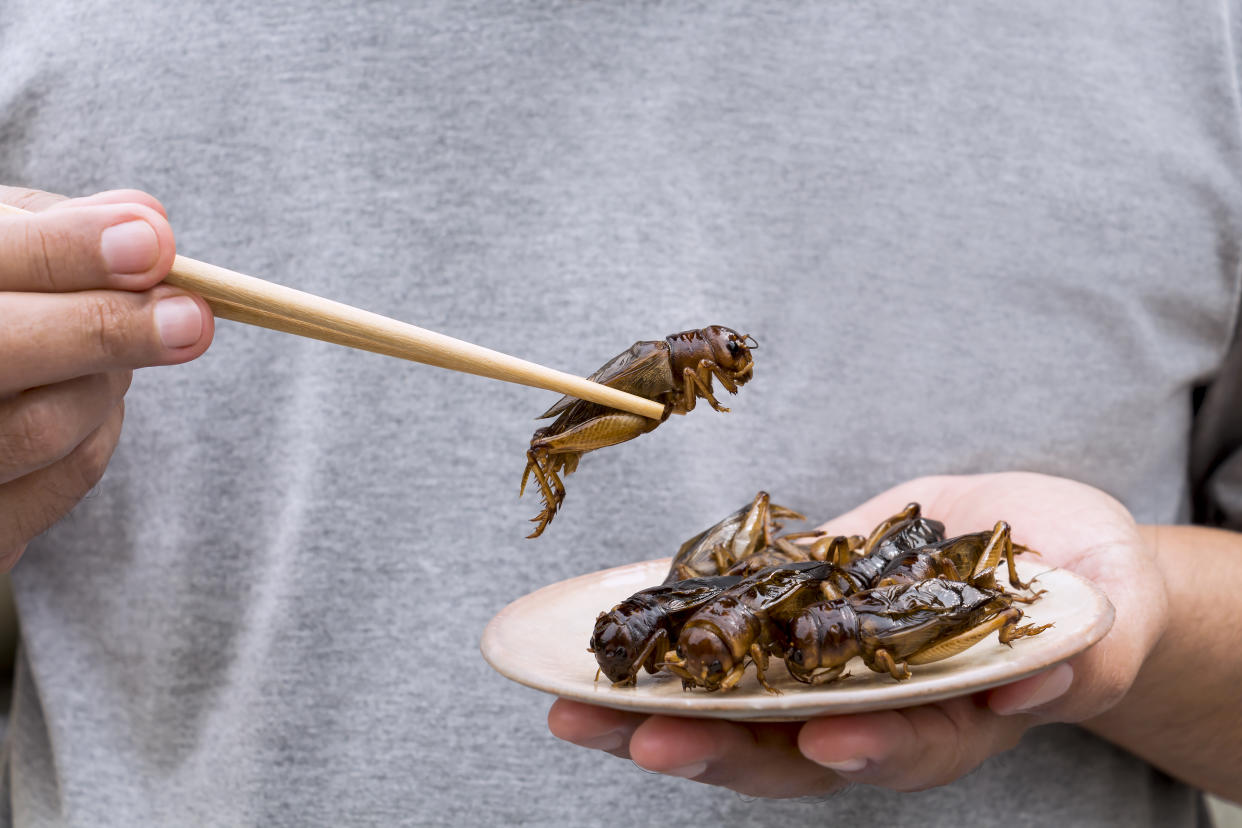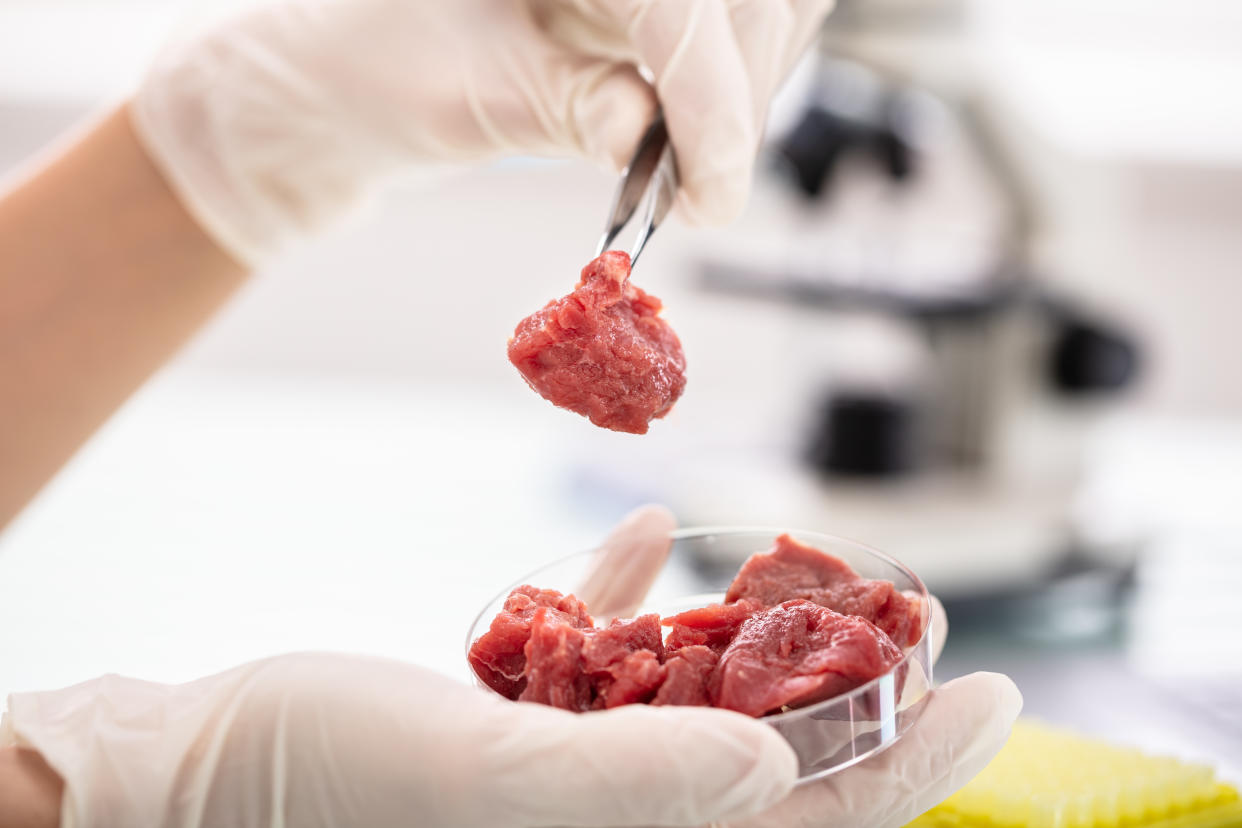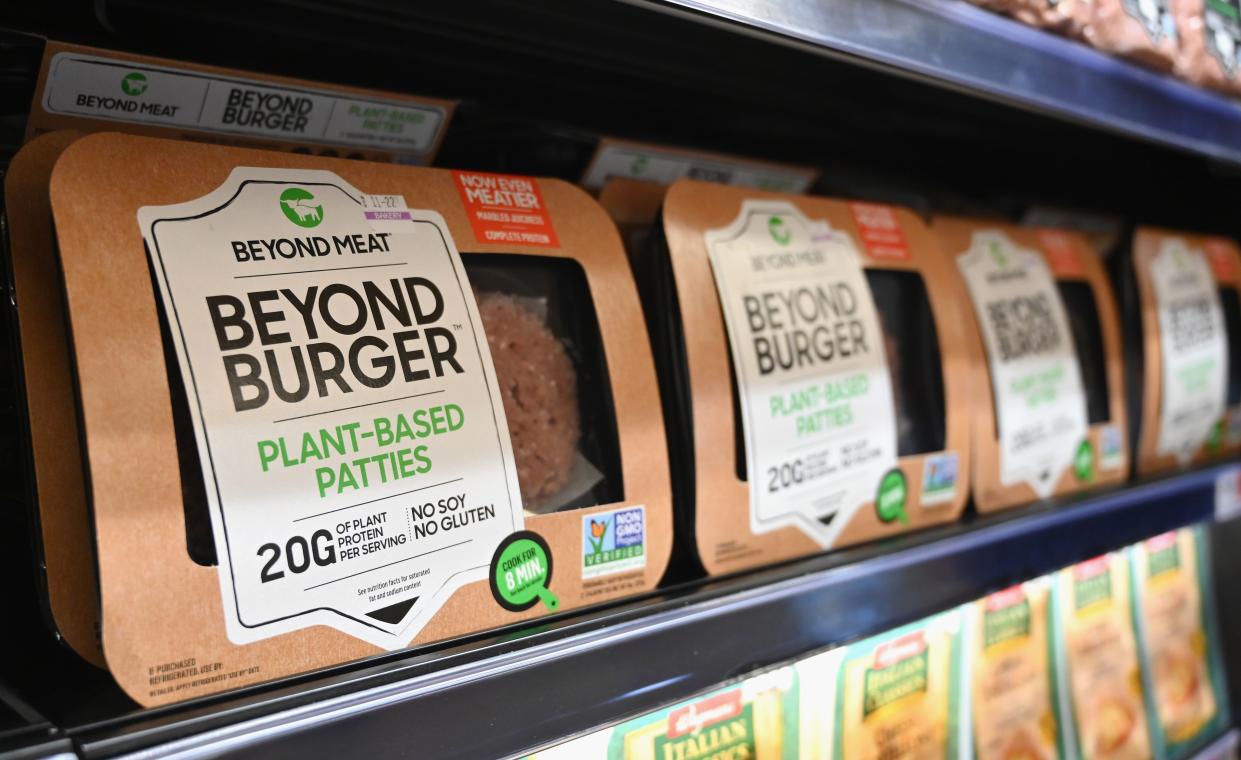Eating insects and 'cultured' milk could reduce human impact on the planet by 80%

Switching to a diet of steaks grown in labs and burgers made from ground-up insects could reduce pressure on the planet by up to 80%, researchers say.
The benefits of switching to these ‘novel or future’ foods (NFFs) could see big reductions in carbon emissions and water use - as well as freeing up land currently used for farming.
Some of the ‘NFFs’ under investigation include ground-up insects, edible algae, and milk and egg whites grown from animal cells.
Growing meat in laboratory dishes could be far more environmentally friendly than ‘natural’ ways of rearing animals.
The University of Helsinki researchers say that these new foods could offer the same protein and nutrients that we currently have in our diets, but without the impact on our planet, the BBC reported.
The Finnish researchers studied both the nutritional value of the products and also their impact on the planet in terms of water use, land use and carbon emissions.

Read more: Melting snow in Himalayas drives growth of green sea slime visible from space
The researchers say that switching to lab-grown meat, ‘cultured’ milk and insects could reduce these impacts by more than 80% while still providing a complete supply of nutrients.
But the researchers say that switching to a vegan diet has a similar impact.
Rachel Mazac of the University of Helsinki said: "With significant reductions in animal-sourced foods and substitutions with novel or future foods and plant-based protein alternatives, you can have significant reductions in environmental impacts in terms of global warming potential, land use and water use.”
Reducing consumption of foods of animal origin by three-quarters could have a 75% positive impact on water, climate and land use, Mazac says.
But when it comes to lab-grown meat, a study last year has suggested that 35% of meat-eaters find the idea disgusting.
The problem is even worse among vegetarians (who could, in theory, eat lab-grown meat as no animal has died to make it), with 55% finding the idea of lab-grown meat revolting.
The researchers wrote: "As a novel food that humans have never encountered before, cultured meat may evoke hesitation for seeming so unnatural and unfamiliar – and potentially so disgusting.”
Read more: A 1988 warning about climate change was mostly right

Read more: Melting snow in Himalayas drives growth of green sea slime visible from space
The researchers asked meat eaters and vegetarians what they thought of ‘cultured meat’ based on a brief description of what it is and how it was made.
The volunteers were asked about what they thought about the food, what put them off it, and asked to respond to statements such as “cultured meat seems artificial” and “I would feel like I am eating something from an animal”, ScienceAlert reported.
The researchers found that the perceived “unnaturalness” of the product predicted disgust in both meat-eaters and vegetarians.
But for meat-eaters, the fact that it resembles animal flesh made it less disgusting.
The researchers wrote: “These findings can guide efforts to improve consumer acceptance of cultured meat. Cultured meat - real animal flesh produced from in vitro cell cultures, without the need to raise animals - is now poised to become publicly available.
“Compared to conventional meat, cultured meat offers environmental benefits in its production using less water and yielding fewer greenhouse gas emissions. However, many people find cultured meat too disgusting to eat.”
A report last year suggested that Britain should embrace ‘synthetic meat’ in order to hit its climate targets.
The Social Market Foundation report urged policymakers to invest in the ‘alternative protein’ sector (where meat is produced using technologies such as ‘growing’ muscle fibre from tissue samples).
Other alternative proteins in the report include those derived from plants or from fermentation processes.
The report points out that consumers in the UK only eat 6% less meat per capita than in 1974 - despite the growing popularity of vegetable products and diets such as veganism.
Watch: Plant-based steak from a 3D printer near you


